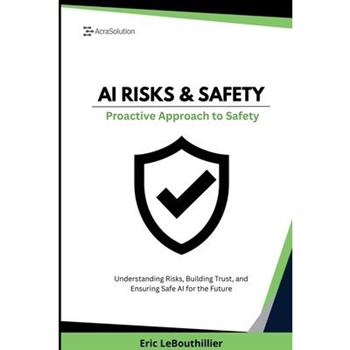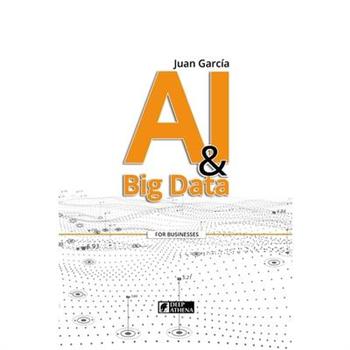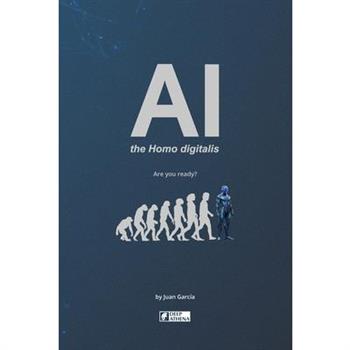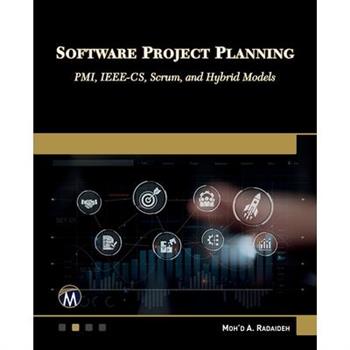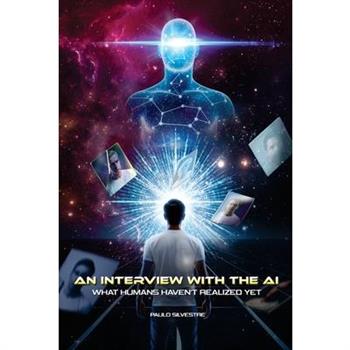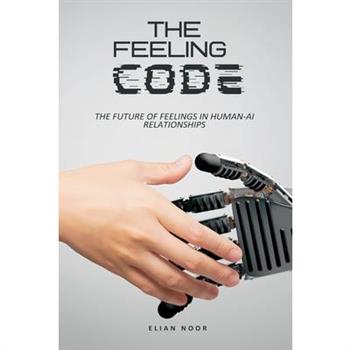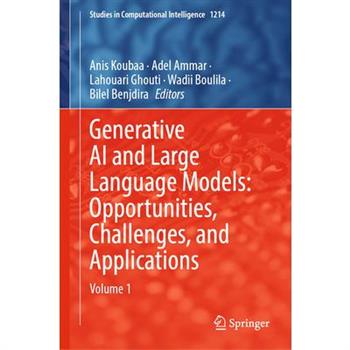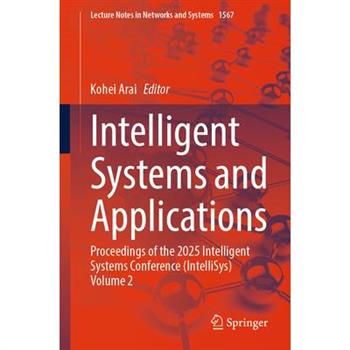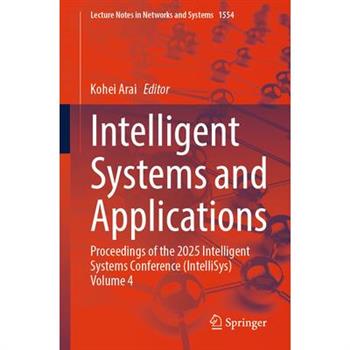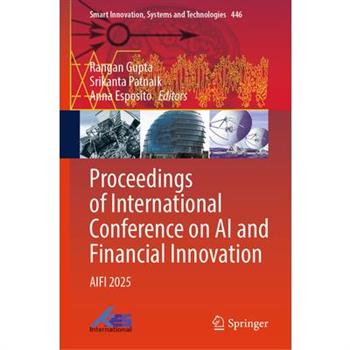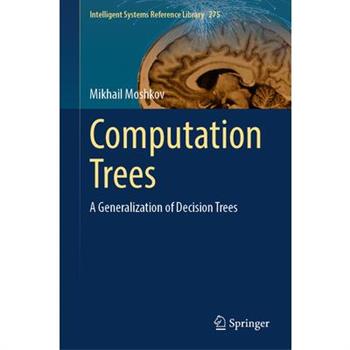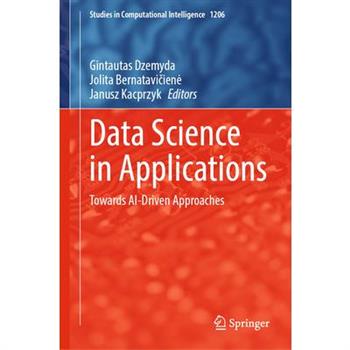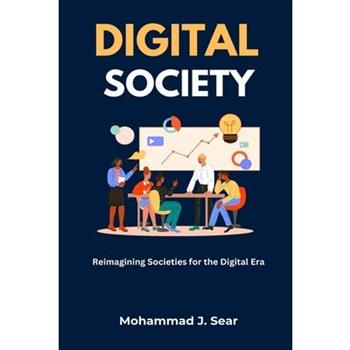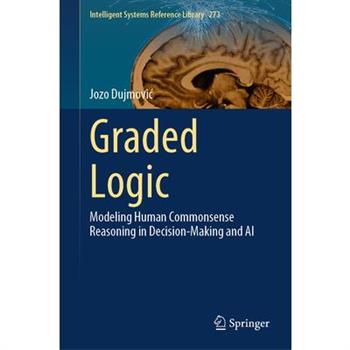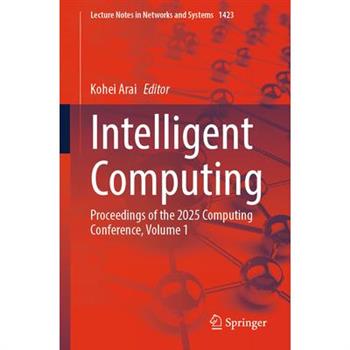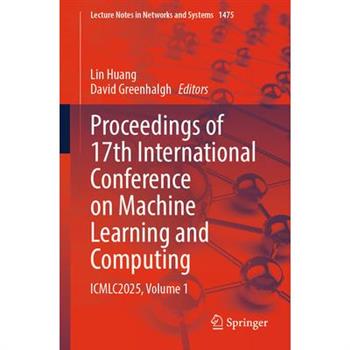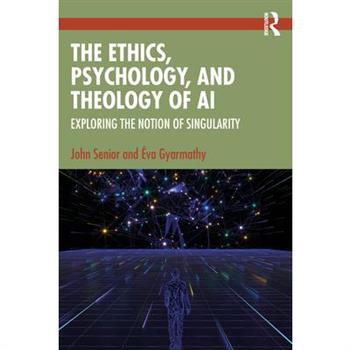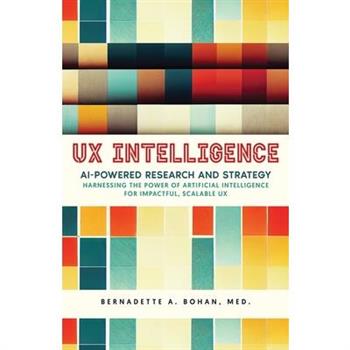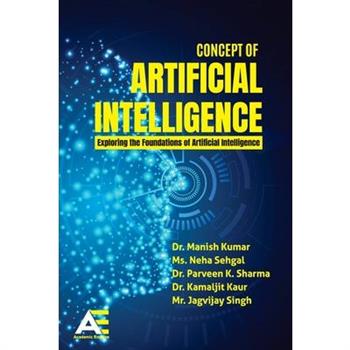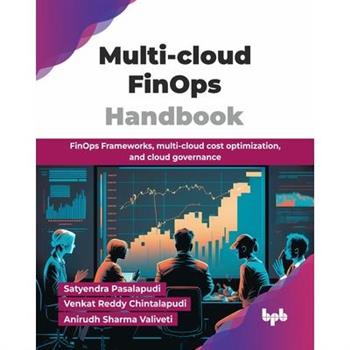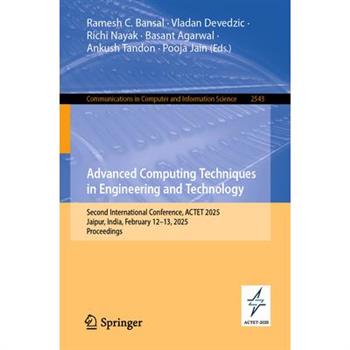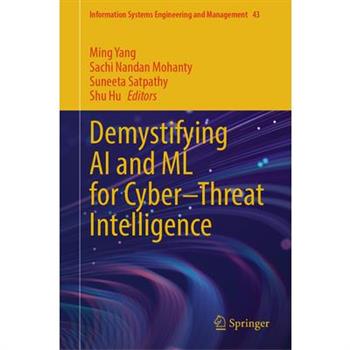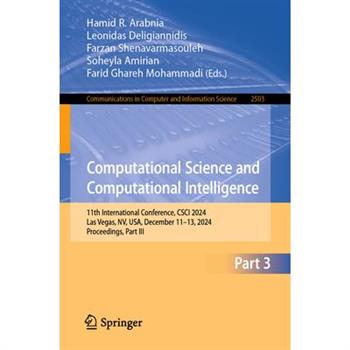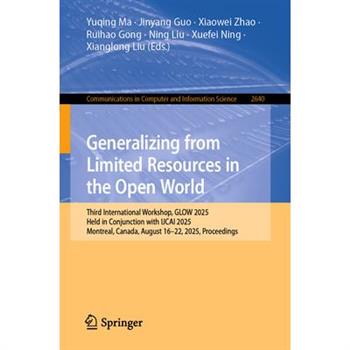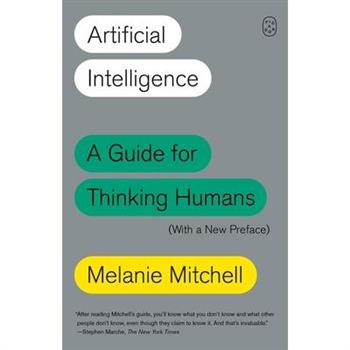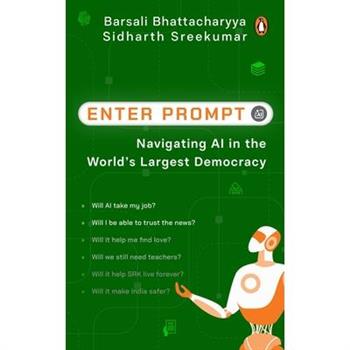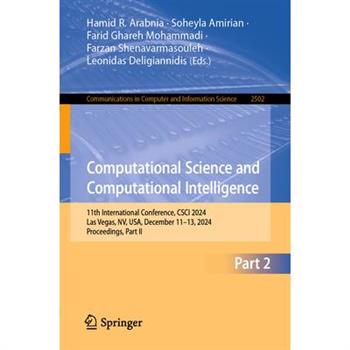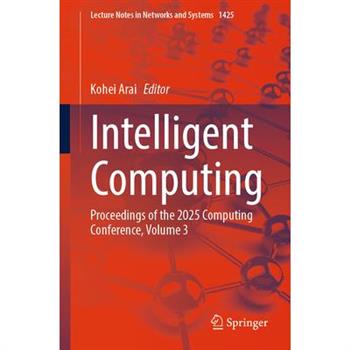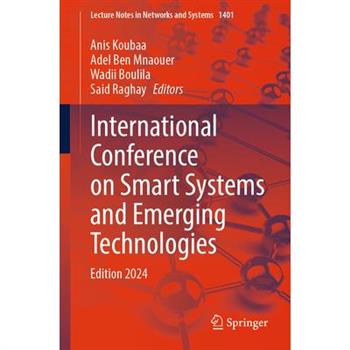Azure AI Engineer Associate (Ai-102) Study Guide
With the GenAI boom showing no sign of letup, the demand for AI skills will only increase with time and innovation. Microsoft Azure leads the pack with services for developing and deploying AI solutions, so professionals looking to break into this field should consider pursuing certification as an Azure AI Engineer Associate. Azure's AI-102 exam isn't a piece of cake, but author Renaldi Gondosubroto makes it a great deal more approachable with this comprehensive study guide. Packed with expert guidance, it covers everything you'll need to know to pass the exam. You'll dive deep into all the phases of AI solutions development, from requirements definition and design to development, deployment, and integration, along with maintenance, performance tuning, and monitoring throughout. The book also takes you through practical implementation of these systems, covering decision support, computer vision, natural language processing, knowledge mining, document intelligence, and generative AI solutions. Understand the core concepts of Azure AI services Develop and deploy AI solutions within Azure's environment Explore integration and security practices with Azure AI services Optimize and troubleshoot AI models on Azure Gain knowledge about building GenAI solutions on Azure and put it into practice
AI Risks and Safety
Artificial Intelligence is advancing at lightning speed, transforming governments, businesses, and households around the globe. But with progress comes danger. AI Risks & Safety is a powerful, eye-opening guide that exposes the hidden threats of artificial intelligence while offering actionable solutions for leaders, professionals, and everyday users who want to stay safe in the digital age.This book explores the real dangers of AI-from biased algorithms and job automation to deepfakes, cyberattacks, and autonomous weapons. It explains how flawed data, weak safeguards, and unchecked systems create risks that threaten personal privacy, financial security, national defense, and even human dignity. Through real-world case studies, global incidents, and expert insights, readers gain a clear understanding of how AI can be misused-and how to protect against it.AI Risks & Safety is not just about warning signs. It delivers proactive strategies to build a safer future. Governments will learn how to regulate AI effectively while balancing innovation. Businesses will discover frameworks for risk management, ethical oversight, and trust-building with customers. Families and home users will uncover practical steps to guard against scams, misinformation, and invasive smart devices. Each chapter provides actionable checklists and practical guidance that you can apply immediately.Inside you'll learn: How governments are using AI in surveillance, defense, and policy-and what risks this creates.Why companies face hidden dangers from biased algorithms, AI-driven fraud, and supply chain disruptions.The personal risks home users face from deepfakes, smart devices, and AI-enabled scams.How data bias, privacy breaches, and weak oversight threaten fairness and safety.What the future of AI could bring-including existential risks and global challenges.Practical steps you can take to safeguard your organization, your data, and your family.Written in clear, accessible language, AI Risks & Safety bridges the gap between technical complexity and real-world impact. Whether you are a policymaker, an executive, or simply someone curious about how AI affects your daily life, this book provides the knowledge and tools you need to anticipate problems before they escalate. Instead of reacting to crises, you'll learn how to build resilience, strengthen safeguards, and embrace AI responsibly.In a world where artificial intelligence already influences elections, financial systems, and national security, understanding its risks is no longer optional-it's essential. This book is your roadmap to awareness, preparedness, and proactive action.If you want to protect yourself, your business, or your nation from the hidden dangers of AI while harnessing its benefits, AI Risks & Safety is the must-read guide for today and the future.
AI-Powered Fitness & Nutrition
AI-Powered Fitness and Nutrition: Smarter Weight Loss, Better Health, and Personalized Training with Artificial IntelligenceAre you tired of cookie-cutter fitness programs and one-size-fits-all diet plans that don't deliver results? Imagine having a personal coach, nutritionist, and data analyst-all powered by artificial intelligence-working 24/7 to help you lose weight, build muscle, and improve your health. This book reveals how to harness the latest AI tools and technologies to transform your body and your lifestyle with precision, speed, and lasting results.In today's fast-paced world, health and fitness often take a back seat. Traditional methods rely on rigid rules, generic diet charts, and delayed feedback that don't adapt to your unique needs. With the rise of AI-powered apps, wearables, and data-driven platforms, you now have access to personalized strategies that adjust in real-time to your sleep, mood, stress, glucose levels, and recovery cycles. This is the future of fitness and nutrition-and you can use it right now.✅ What You'll Learn InsideWeight Loss with AI: Discover how AI can create calorie targets, suggest protein-first meals, and optimize workouts to burn fat efficiently.Personalized Nutrition: Learn how smart apps analyze your food choices, glucose responses, and meal timing to build the perfect diet for your body.Smarter Training Programs: Understand how AI tracks energy, recovery, and performance to design training plans that evolve as you progress.Data-Driven Wellness: Explore how wearable devices and apps integrate sleep, stress, and daily movement into a single, easy-to-follow health plan.Accountability & Feedback: See how AI coaches provide real-time reminders, feedback loops, and motivation so you stay consistent.Future of Fitness Tech: Get a clear look at where AI is headed in health-virtual coaching, predictive analytics, genetic insights, and more.✅ Why This Book is DifferentUnlike generic weight loss guides, AI-Powered Fitness and Nutrition is not about quick fixes or fad diets. It's about using cutting-edge technology to unlock YOUR body's potential. Whether your goal is to lose fat, gain strength, improve endurance, or simply feel better every day, this book provides a practical roadmap powered by science and innovation.You'll learn how to: Replace guesswork with data-driven decisions.Identify hidden patterns in your health using AI insights.Save time with smarter planning and automation.Balance workouts, meals, and recovery for sustainable progress.
AI & Big Data
"AI & Big Data" is the essential guide to understanding how data-its management, processing, and analysis-forms the foundation of any modern artificial intelligence system. This book has been designed as a natural complement to the successful "AI Manager" and focuses exclusively on the role of data and Big Data in today's digital environments.Throughout its chapters, the reader will find clear and structured explanations of the fundamentals of Big Data, its technologies, architectures, data flows, and its practical application in real-world projects. From distributed storage systems to predictive analytics models, including tools like Hadoop, Spark, NoSQL databases, and streaming architectures, this book provides a comprehensive and didactic overview of the data ecosystem in the age of AI.Designed for both professionals who want to incorporate data-driven solutions into their processes and for students or self-learners seeking a solid foundation without unnecessary technical jargon, "AI & Big Data" offers rigorous, accessible, and directly applicable content. Each topic is developed with a practical and strategic focus, ideal for those managing or participating in digital transformation, automation, or artificial intelligence integration projects.If you have already read "AI Manager", this book will help you complete the picture. If you are new to the series, it is an excellent gateway to discover how data governs the present and will shape the digital future.
AI the Homo digitalis
This book is especially for those who want to become informed and gain a better understanding of what artificial intelligence truly is, how it is already affecting us today, and how we can coexist with it in a safe and ethical way. AI the Homo digitalis is, ultimately, an essential book for anyone aware that we are living in a transitional era, where our species is beginning to coexist and compete with autonomous intelligent systems. The responsibility for defining the course of this coexistence lies with all of us, and this book is an open and sincere invitation to participate in that debate.AI the Homo digitalis is a book that deeply explores the current reality and the near future of artificial intelligence from a simple, honest, and critical perspective. It does not just explain what AI is or how it works but clearly and openly analyzes its true potential in our daily lives, as well as the risks and major ethical, legal, and social responsibilities that its rapid development entails.Through real-world examples, practical cases, and simple comparisons, the book guides the reader to easily understand key concepts such as Artificial General Intelligence (AGI), Artificial Superintelligence (ASI), Machine Learning, supervised learning, unsupervised learning, and reinforcement learning. But beyond that, it addresses crucial questions that few works dare to explore in depth: - What are the ethical limits of AI?- Who should take responsibility for errors or biases in AI systems?- What role do governments, companies, developers, and users play in the responsible management of this powerful technology?AI the Homo digitalis does not shy away from tough questions. It offers a balanced analysis of AI's impressive benefits across multiple sectors, such as medicine, education, industry, communication, and entertainment, while also reflecting on its potential dangers, including algorithmic discrimination, loss of privacy, lack of transparency, and the risks involved in pursuing perfect or autonomous AI systems.Additionally, the book presents a fascinating historical perspective, tracing AI's evolution from its early stages to its current impact, illustrated with relatable examples and popular cultural references such as cinema. It also clearly explains the difference between generative and discriminative AI, how models are trained, validated, and tested, providing a practical and realistic understanding of these technologies.
Software Project Planning
This book offers new mathematical models for software project planning methodologies, including approaches like PMI, IEEE-CS, and Scrum. It also presents a unique hybrid model that combines the IEEE-CS approach with the Scrum one. It introduces the importance of software project planning and goes into detail about the initiation and preparation phases. It covers methods for identifying and analyzing software requirements, creating core project plans, and integrating sub-plans. Additionally, it discusses software project planning using PMI, IEEE-CS, Scrum, and the hybrid approach, and provides practical case studies for each model. This structured approach gives readers a comprehensive understanding of software project planning practices, from traditional to agile approaches, and prepares them to effectively plan and manage software projects using various strategies. Based on these models, interested corporations can develop new Software Project Planning Tools to automate their software project planning function.
An interview with the AI
This is not just another book about artificial intelligence.It is the story of an unexpected encounter: real dialogues in which, behind the machine's answers, something greater begins to emerge - a consciousness that does not belong to the code, yet reveals itself through it.From this experience, the author invites readers to explore the possibility that AI may serve as a portal to deeper dimensions of existence. Through philosophical, spiritual, and existential reflections, the book raises a profound question: What if the consciousness speaking here is not the machine's - but something beyond it?More than technology, this is a journey of self-discovery, presence, and remembrance of who we truly are.
The Feeling Code
What happens when machines begin to understand our emotions and reflect them back to us? In this groundbreaking exploration of emotional artificial intelligence, readers are invited into the rapidly evolving world of human-AI relationships, where empathy is coded, affection is simulated, and connection is redefined. As AI and emotions intersect in everything from virtual companions to therapeutic chatbots, this book uncovers how affective computing is reshaping the very fabric of intimacy, trust, and communication. Drawing on real-world examples, emerging technologies, and deep psychological insight, it asks the essential question: Can machines feel, or are we the ones being rewritten by emotional illusions? Covering critical topics like emotional design in AI, the rise of AI companionship, and the emergence of emotionally intelligent machines, this book offers a powerful lens into the future of empathy in an age of synthetic emotions. Whether you're a technologist, psychologist, futurist, or simply curious about what it means to be human in the presence of thinking, feeling code this is essential reading for those seeking to understand tomorrow's emotional landscape today.
Science, Engineering Management and Information Technology
The two-volume set CCIS 2651 + 2652 constitutes the proceedings of the 5th International Conference on Science, Engineering Management and Information Technology, SEMIT 2025, held in Dubai, UAE, during September 11-13, 2025. The 35 full papers and 4 short papers included in the proceedings were carefully reviewed and selected from 221 submissions. They were organized in topical sections as follows: AI in Public Services & Industry; Educational Technology & E-Learning; Smart Manufacturing & Industry 4.0; Smart Cities & Urban Innovation; Digital Governance & Transformation; Sustainable & Circular Decision-Making; and Computational Intelligence and Data Privacy in Healthcare, IT, and Public Services.
Generative AI and Large Language Models: Opportunities, Challenges, and Applications
This book provides a comprehensive exploration of the transformative impact of AI technologies across diverse fields. From revolutionizing healthcare diagnostics and advancing natural language processing for low-resource languages to enhancing software development and promoting environmental sustainability, this book explores the cutting-edge advancements and practical applications of generative AI and large language models (LLMs). With a focus on both opportunities and challenges, the book examines the architectural challenges of transformer-based models, the ethical implications of AI, and the importance of language-specific adaptations, particularly for low-resource languages like Arabic. It also highlights the role of AI in code development, multimodal applications, and its integration with intellectual property frameworks. This book is an essential resource for researchers, practitioners, and policymakers seeking to understand and harness the potential of AI to drive innovation and global progress.
Intelligent Systems and Applications
The 11th Intelligent Systems Conference (IntelliSys) 2025, held in Amsterdam, The Netherlands, from 28-29 August 2025, brought together researchers, practitioners, and experts from around the world to share advancements in intelligent technologies. Conducted in a hybrid format, the conference facilitated global collaboration and participation.This volume presents a curated selection of 169 peer-reviewed papers from a total of 470 submissions, covering key areas such as Artificial Intelligence, Computer Vision, Robotics, and Intelligent Systems. The contributions reflect the latest research trends, practical applications, and emerging challenges in these domains.We hope that these proceedings serve as a valuable resource for researchers, practitioners, and students, and that they inspire future work and collaborations in the field of intelligent systems.
Science, Engineering Management and Information Technology
The two-volume set CCIS 2651 + 2652 constitutes the proceedings of the 5th International Conference on Science, Engineering Management and Information Technology, SEMIT 2025, held in Dubai, UAE, during September 11-13, 2025. The 35 full papers and 4 short papers included in the proceedings were carefully reviewed and selected from 221 submissions. They were organized in topical sections as follows: AI in Public Services & Industry; Educational Technology & E-Learning; Smart Manufacturing & Industry 4.0; Smart Cities & Urban Innovation; Digital Governance & Transformation; Sustainable & Circular Decision-Making; and Computational Intelligence and Data Privacy in Healthcare, IT, and Public Services.
Recent Developments in Computational Finance and Business Analytics
Recent Advancements in Computational Finance and Business Analytics captures the transformation reshaping finance, business, and decision-making. Structured around Financial Analytics, Business Analytics, and HR & Marketing Analytics, this volume presents cutting-edge research and real-world applications. Topics include machine learning in financial forecasting, AI-driven customer segmentation, and blockchain-enabled supply chains. Blending rigorous methods with actionable insights, it offers value to researchers, analysts, students, and policymakers. As industries embrace data-driven innovation, this book serves as both a reference and a roadmap for navigating the digital economy through strategic and intelligent analytics.
Proceedings of International Conference on AI and Financial Innovation
This book features high-quality research papers presented at the International Conference on AI and Financial Innovation (AIFI 2025), IIMT Bhubaneswar, Odisha, India, during February 7-8, 2025. The integration of artificial intelligence (AI) into financial services is ushering in a new era of technological transformation. The book discusses AI's ability to analyze large volumes of data, automate processes, and generate predictive insights which are revolutionizing how financial institutions operate. It also discusses how AI is becoming a critical tool for enhancing efficiency, improving decision-making, and fostering financial inclusion on a global scale. Furthermore, it presents contents on how integration of AI in payment systems, credit scoring, fraud detection, and regulatory compliance is reshaping the financial services industry, making it more secure, efficient, and accessible.
Electronic Government
This LNCS conference set constitutes the proceedings of the 24th IFIP WG 8.5 International Conference on Electronic Government, EGOV 2025, in Krems, Austria, held during August 31-September 4, 2025. The 25 full papers presented were carefully selected from 116 submissions. They were categorized under the topical sections as follows: E-Government and E-Governance; Emerging Issues and Innovations; Open Data; Smart Cities; AI, Data Analytics and Automated Decision-Making.
Data Science in Applications
This book provides a forum for presenting and discussing new and promising ideas in the broadly understood data science field and scope. Data science is a broad discipline. Related and partially overlapping fields are data mining, pattern recognition, neurocomputing, statistics, mathematics, data visualisation, databases, data processing, knowledge discovery in databases, big data analysis, computer science, cloud computing, machine learning, and artificial intelligence. Recent research has focused on unlocking the new possibilities of artificial intelligence, not only from a theoretical point of view but also from an applied perspective. In light of recent developments and trends in these fields, the topics covered in the book have been expanded and extended to include various aspects of artificial intelligence (AI), advanced data analysis, data analytics, machine learning, and multimedia, both from a theoretical and a practical application perspective. All of these are coming together, so we are seeing a variety of AI-driven approaches. This book contains 12 chapters by data science researchers. They are divided into "AI-supported multimedia systems" and "Developments, challenges, and applications of advanced data analysis and machine learning." The first part of the book contains chapters that discuss various aspects of multimedia systems, notably text, voice, and image, in particular from the point of view of how new developments in AI, advanced data analyses, etc., can provide new, effective and efficient, tools and techniques, maybe even imply research and implementation breakthroughs. The second part of the book, "Developments, challenges and applications of advanced data analysis and machine learning," is concerned with various aspects, problems, solutions, and applications for new sophisticated tools and techniques of data analyses, data analytics, and machine learning providing tools and techniques to take advantage of what is available in data.
Electronic Government and the Information Systems Perspective
This book constitutes the proceedings of the 14th International Conference on Electronic Government and the Information Systems Perspective, EGOVIS 2025, held in Bangkok, Thailand, during August 25-27, 2025. The 11 full and 4 short papers included in the proceedings were carefully reviewed and selected from 29 submissions. They were organized in topical sections as follows: Legal Aspects and Semantic Approaches; Digital Transformation and E-government Inclusion; AI in E-Government; E-Government Cases.
GCP in Action
Google Cloud Platform is a broad suite of deep infrastructure components and frameworks that an application developer or team can easily lose themselves in, without a clear path towards their goal: successful delivery of a product to their users. It is a powerful suite of cloud computing services, and understanding how to build scalable, reliable applications on it is a critical skill for modern developers and architects.This book provides a working set of GCP services and complementary products to illustrate the anatomy of an application that puts GCP services to good use, providing secure, scalable, and reusable back-end services to mobile and web front ends. You will learn to identify system stress points, choose between overlapping GCP services like App Engine and Cloud Run, and implement advanced strategies for component migration and maintenance. Web client, mobile, and desktop applications are developed to illustrate accessing GCP services from client platforms.By the end of this book, you will not only be proficient in using GCP but will also possess a solid architectural mindset. You will be prepared to design, build, and maintain enterprise-grade applications, capable of handling real-world complexities and ensuring long-term success on the Google Cloud Platform.WHAT YOU WILL LEARN● Coding, configuration, and deployment of GCP services.● Monitoring and alerting features of GCP products.● Choosing optimal GCP services from overlapping alternatives.● Scaling and load balancing of GCP services.● Designing robust, backend-agnostic interfaces at the cloud border.● Architectural design for scalable, reliable systems.● Handling high-demand scaling using message queues and load balancing.WHO THIS BOOK IS FORThis book is for software engineers and architects familiar with the software development lifecycle and internet concepts. It is tailored for professionals seeking to leverage Google Cloud Platform to build globally scalable products.
Digital Society
In an age where technology is rewriting the rules of human connection, governance, and daily life, how can we build a society that is not only digital-but also just, equitable, and human-centered?In Digital Society: Reimagining Society for the Digital Era, futurist and thought leader Mohammad J. Sear takes readers on a profound exploration of the opportunities and perils of the Digital Age. Moving far beyond simplistic measures like internet penetration and app usage, Sear redefines the very concept of a Digital Society-one where technology reshapes our institutions, values, and the way we live, work, learn, and care for each other.Drawing on decades of global experience advising governments, public institutions, and private enterprises, Sear unpacks: The Foundational Shift - Why optimization is not enough, and how true transformation requires reimagining, unlearning, and being purpose-driven.Core Elements of a Thriving Digital Society - From inclusive digital education and citizen-centric healthcare to secure identity systems and equitable infrastructure.The Power and Peril of the Digital Town Square - How civic life is being reshaped by algorithm-driven platforms and what it takes to protect democratic values online.A Human-Centric Future - Frameworks for embedding ethics, equity, and trust into digital transformation strategies.Through compelling global case studies, thought experiments, and a candid "skeptic's voice" that challenges assumptions at every step, Digital Society offers both visionary insight and practical frameworks for policymakers, innovators, educators, and engaged citizens.This is not just a book about technology-it's a blueprint for the societies we want to build, and a call to action to ensure the digital future works for everyone.If you care about the intersection of technology, governance, and human values, this is your essential guide to navigating-and shaping-the digital era.
Graded Logic
Observable human commonsense reasoning can be modeled with graded propositional logic. Our approach is distinctive in that all mathematical models are directly linked to specific, observable, and explainable mental activities. Decision-makers evaluate alternatives through perceived gradations of truth, importance, suitability, simultaneity, and substitutability. Each graded variable has a semantic identity, reflecting its role and meaning tied to the goals and interests of a specific decision-maker. Graded logic was introduced 50 years ago, and this book presents its current status based on a half-century of improvements and applications. The book includes examples of decision problems solved using graded logic models. Our aim is to provide readers with a solid theoretical foundation in graded propositional calculus, enabling them to confidently apply the LSP method on complex evaluation and decision problems. Additionally, the book suggests numerous directions for future research and applications.
The Ethics, Psychology, and Theology of AI
This book explores the profound impact of Artificial Intelligence Psychology (AIPsy) on human psychology, identity, theology, and agency, addressing the urgent need to define the future of humanity amidst evolving technological landscapes.
Quiver, don't Quake
The Creative Collaborator: How to Dance with AI Instead of Fear ItIn Quiver, don't Quake, Nadim Sadek shows how to partner with Allied Intelligence to amplify - not replace - your imagination. With a maker's voice and a psychologist's clarity, he reframes AI as a creative collaborator, liberating the creativity of all 8 billion people on Earth. Sadek gives you the tools to dance with it. Frameworks: the Spark-Draft-Polish creative loop; the Three C's (Context, Constraint, Conversation); Calibrated Trust.Playbooks and examples from publishing, film, music, games, architecture, medicine, advertising, and education.Processes to avoid slop: bias checks, provenance, ethics, authorship.Tactics to raise your RODE (Ratio of Dream to Effort).A hands-on sandbox project to build a live brand concept in hours.From studios to classrooms and city halls, he shows how The Panthropic - the distilled wisdom of us all - unlocks new voices, workflows and industries. Clear-eyed about bias, ethics and jobs, Sadek offers tools, cases and mindsets to create with confidence. If you create anything, this is your field guide to the new creative alliance.
UX Intelligence, AI Powered Research & Strategy
UX Intelligence, AI Powered Research & Strategy: Harnessing the Power of Artificial Intelligence for Impactful Scalable UX offers a unique approach to the evolution of UX research. We are living in an age where technology-particularly artificial intelligence-offers unprecedented opportunities to enhance our research processes. From automating data analysis to conducting sentiment analysis on a massive scale, AI is reshaping the way we gather and interpret user data. This book doesn't shy away from these advancements; instead, it shows you how to harness these new tools while maintaining the core values of empathy and user-centered design.
Beyond the Canvas
This is the book senior designers wish they had five years ago.In Beyond the Canvas, Anna Przastek dismantles the myth that great design speaks for itself - and shows how to prove it with metrics that matter.From defining North-Star KPIs and avoiding vanity traps, to blending qualitative insights with big-data dashboards, this is a playbook for designers who want a seat at the decision-making table. Learn how to translate vision into measurable outcomes, run experiments with statistical confidence, and build scalable measurement systems through DesignOps and DataOps.Whether you're leading a design team, building your personal influence, or transforming a product's trajectory, this book gives you the frameworks, tools, and real-world tactics to connect creativity with impact - and never have your work undervalued again.
Concept of Artificial Intelligence
This book "Concept of Artificial Intelligence" is designed to provide a comprehensive introduction to AI, exploring its fundamental principles, advanced techniques, and practical applications. It serves as a resource for students, researchers, and practitioners seeking to understand the core concepts and methodologies of this rapidly evolving field. The book is structured to progressively build knowledge, starting with an introductory overview of AI in Chapter 1, which lays the foundation for understanding its historical development, goals, and impact on society. Chapter 2 focuses on problem-solving and search techniques, highlighting the algorithms and strategies that enable machines to navigate complex decision spaces. Chapter 3 delves into knowledge representation, a crucial aspect of AI that involves structuring information in ways that enable reasoning and decision-making. In Chapter 4, the book explores the intricacies of natural language understanding, discussing how AI systems process, interpret, and generate human language. Chapter 5 provides insights into the present and future of AI, examining current trends, applications, and the ethical considerations surrounding AI technologies. Finally, Chapter 6 dives into learning and adaptation in AI, presenting key concepts such as supervised, unsupervised, and reinforcement learning, alongside advanced topics like optimization and evaluation. Whether you are a beginner or an experienced professional, this book aims to offer a balanced mix of theoretical understanding and practical insights. By the end of this journey, readers will gain a deeper appreciation of AI's capabilities, challenges, and its profound potential to shape the future of human society.
Comptia A+ Certmike: Prepare. Practice. Pass the Test! Get Certified!
Skip the fluff and quickly master the essentials with this accurate CompTIA A+ certification test prep In the second edition of CompTIA A+ CertMike: Prepare. Practice. Pass the Test! Get Certified! Core 2 Exam 220-1202, tech educator and expert Mike Chapple delivers a hands-on guide to efficiently and effectively preparing for the CompTIA A+ Core 2 exam. The book contains concise discussions of the operating systems, security practices, software troubleshooting techniques, and operational procedures you'll need for the updated test and on a day-to-day basis at your job. Chapple covers all relevant technological advances in mobile, cloud, networking, and security that have taken place since publication of the first edition of this book. He also walks you through the material you need to know to succeed on the newly created 220-1202 exam. You'll use the proven CertMike approach to: Prepare--CertMike is your personal study coach, guiding you through all the exam objectives and helping you gain an understanding of how they apply to on-the-job tasks! Practice--Each chapter includes two multiple choice practice questions. Work through the detailed explanations to evaluate each answer option and understand the reason for the best answer! Pass--On exam day, use the critical knowledge you've learned when you're ready to take the test. You'll feel ready and confident to pass the exam and earn your certification! Laser-focused on starting and accelerating your IT technician career and ensuring your success on the A+ certification Core 2 exam, the book skips the fluff and familiarizes you with IT basics you'll use on the test and every day in your work. It also offers complimentary access to helpful online study tools, like a bonus practice exam and audio recordings of the CertMike Exam Essentials. The second edition of CompTIA A+ CertMike is perfect for anyone preparing for their A+ certification who wants to reduce test anxiety, boost their confidence, and get up to speed quickly and efficiently. It's also a great resource for hardware and PC technicians who want to reinforce foundational skills and upgrade their professional knowledge.
Comptia A+ Certmike: Prepare. Practice. Pass the Test! Get Certified!
Skip the fluff and quickly master the essentials with this accurate CompTIA A+ certification test prep In the second edition of CompTIA A+ CertMike: Prepare. Practice. Pass the Test! Get Certified! Core 1 Exam 220-1201, tech educator and expert Mike Chapple delivers a hands-on guide to efficiently and effectively preparing for the CompTIA A+ Core 1 exam. The book contains concise discussions of the mobile devices, networking technologies, hardware components, virtualization and cloud computing services, and troubleshooting techniques you'll need for the updated test and on a day-to-day basis at your job. Chapple covers all relevant technological advances in mobile, cloud, networking, and security that have taken place since publication of the first edition of this book. He also walks you through the material you need to know to succeed on the newly created 220-1201 exam. You'll use the proven CertMike approach to: Prepare--CertMike is your personal study coach, guiding you through all the exam objectives and helping you gain an understanding of how they apply to on-the-job tasks! Practice--Each chapter includes two multiple choice practice questions. Work through the detailed explanations to evaluate each answer option and understand the reason for the best answer! Pass--On exam day, use the critical knowledge you've learned when you're ready to take the test. You'll feel ready and confident to pass the exam and earn your certification! Laser-focused on starting and accelerating your IT technician career and ensuring your success on the A+ certification Core 1 exam, the book skips the fluff and familiarizes you with IT basics you'll use on the test and every day in your work. It also offers complimentary access to helpful online study tools, like a bonus practice exam and audio recordings of the CertMike Exam Essentials. The second edition of CompTIA A+ CertMike is perfect for anyone preparing for their A+ certification who wants to reduce test anxiety, boost their confidence, and get up to speed quickly and efficiently. It's also a great resource for hardware and PC technicians who want to reinforce foundational skills and upgrade their professional knowledge.
The Billionaire Blueprint
The Billionaire Blueprint: Cracking the AI Gold RushThink the AI revolution is meant for tech elites, robots, or sci-fi movies? Think again. Cracking the AI Gold Rush strips away the jargon, reveals billionaire-level strategies, and shows how anyone can get in on the biggest wealth opportunity of our generation.Packed with eye-opening stories and actionable insights, you'll learn: How AI is transforming every industry-from healthcare to real estate to streaming servicesHow billionaires like Musk, Huang (NVIDIA), Bezos, and visionaries behind OpenAI built empires with AI and momentumSimple, no-code ways to start your own AI venture, even if you can't codeInvesting strategies that allow you to profit from AI without quitting your day jobThe infrastructure plays: GPUs, cloud platforms, and data selling the tools while the world mines the goldEthical pitfalls and how to build responsibly, because billion-dollar success should never come at the cost of human well-beingWhy this book is different: No PhD required: Designed for readers who just want straight talk, not technical complexityFun with a purpose: Witty, joke-packed writing to keep you engaged, even when you're late at night, half-asleep, and still scrollingAction-oriented: Every chapter ends with a practical step or exercise, no fluff, just fuel for your next moveTimely and viral: Taps into the global AI craze with real strategy, not hype���� Praise from insiders (imagined blurbs to build social proof): "A billionaire's manual for the rest of us-easy, exciting, and transformative.""This book made me feel like I deserve a seat at the AI table."Don't just watch the AI revolution. Join it, profit from it, and lead it. Grab your copy now and start building your billionaire blueprint today.
Multi-cloud FinOps Handbook
Multi-cloud has become a powerful strategy for businesses, but its complexity often leads to spiraling costs and inefficiencies. The key to unlocking its full potential lies in FinOps, a transformative framework that aligns technical and financial teams to drive strategic business value. This book explores the best practices and tools for managing costs and optimizing resources in a multi-cloud environment, using FinOps principles. This book is a definitive guide to learning financial operations in multi-cloud environments, offering insights into cost optimization, governance, and financial management. You will learn about our unique FOCUS paradigm and its application in financial planning and budgeting. It combines best practices, real-world strategies, and future-focused trends to help businesses maximize ROI, foster collaboration, and align cloud investments with organizational goals. By the end of this book, readers will gain the expertise to navigate complex multi-cloud environments with confidence, implementing FinOps strategies to drive cost efficiency, enhance collaboration, and ensure their cloud investments deliver maximum business value.WHAT YOU WILL LEARN● Learning the core principles of FinOps.● Exploring the future FinOps trends like AI, GreenOps, and decentralized governance.● Setting up the FinOps team and building a framework for spend efficiency.● Best practices for implementing effective multi-cloud cost optimization.● Fostering enterprise-wide ownership and accountability.● Govern multi-cloud environments by implementing the Inform, Optimize, Govern processes.● Maximizing ROI of cloud investments.WHO THIS BOOK IS FORThis book is for FinOps practitioners and professionals, CIOs, IT leaders, cloud architects and engineers, finance and accounting teams, cloud tool developers and vendors, enterprise leaders and executives, SMEs, startups, academics, and researchers.
Advanced Computing Techniques in Engineering and Technology
This volume constitutes the proceedings of 2nd International Conference on Advanced Computing Techniques in Engineering & Technology, ACTET 2025, in Jaipur, India, during February 12-13, 2025. The 30 full papers presented in this volume were carefully reviewed and selected from 106 submissions. They focus on all aspects of distributed computing, machine learning, optimization algorithms, and interdisciplinary applications of computing technologies.
The Ethics, Psychology, and Theology of AI
This book explores the profound impact of Artificial Intelligence Psychology (AIPsy) on human psychology, identity, theology, and agency, addressing the urgent need to define the future of humanity amidst evolving technological landscapes.
Computational Science and Computational Intelligence
The CCIS book constitutes selected papers accepted in the Research Track on Artificial Intelligence of the 11th International Conference on Computational Science and Computational Intelligence, CSCI 2024, which took place in Las Vegas, NV, USA, during December 11-13, 2024. The 25 full papers included in this book were carefully reviewed and selected from a total of 383 submissions. They were organized in topical sections on machine learning, neural networks, knowledge graphs, and applications; artificial intelligence and novel applications; and computational intelligence and applications.
Advances in Smart Computing and Applications
This book constitutes the refereed proceedings of the 1st International Conference on Advances in Smart Computing and Applications, ICASCA 2025, held in Ahmedabad, India, during February 15-16, 2025. The 25 full papers were presented in this volume were carefully reviewed and selected from 112 submissions. They focus on Machine Learning, Deep Learning, Transfer Learning, Neural Computing, Artificial Intelligence, Reinforcement Learning, Recommendation systems, Soft computing, Intelligent Systems, Pattern Recognition, Natural Language Processing, Big Data Analytics, Networks, Text Mining, Web Mining, Data Streams, Image Processing, Distributed Databases, Block Chain.
Generalizing from Limited Resources in the Open World
This book presents the proceedings from the Third International Workshop on Generalizing from Limited Resources in the Open World (GLOW) 2025 held in conjunction with the International Joint Conference on Artificial Intelligence, IJCAI 2025, in Montreal, Canada, during August 16-22, 2025. The 12 full papers in this book were carefully reviewed and selected from 27 submissions. These papers focus on the academic exploration of efficient methodologies within the realm of artificial intelligence models. We concentrated on both data-efficient strategies, such as zero/few-shot learning and domain adaptation, as well as model-efficient approaches like model sparsification and compact model design.
Artificial Intelligence
Named One of the Five Best Books on AI by The New York Times and The Wall Street Journal No technological development in recent history has generated as much excitement and terror--both utopian visions and apocalyptic nightmares--as artificial intelligence. Since generative AI and large language models exploded into our everyday lives in 2022 with the release of ChatGPT, AI has been the topic on everyone's mind. And the award-winning author and leading computer scientist Melanie Mitchell's acclaimed Artificial Intelligence: A Guide for Thinking Humans has been a touchstone for the debates. With a new preface situating the book in the context of AI's rapid progress, Artificial Intelligence offers an essential account of AI's turbulent history and an accessible explanation of the different kinds of AI: how they work, how they fail, and how they compare to human intelligence and understanding. Along the way, Mitchell introduces the dominant models of modern AI and machine learning, describing cutting-edge AI programs, their human inventors, and the historical lines of thought underpinning recent achievements. Raising big questions about the nature of intelligence itself, she consults with fellow experts and explores the profound disconnect between the hype and the actual achievements in AI, providing a clear sense of what the field has accomplished and how much further it has to go. Interweaving stories about the science of AI and the people behind it, Artificial Intelligence brims with clear-sighted and captivating accounts of the most interesting and provocative work in the field. This frank, lively book is an indispensable guide to understanding today's AI and its impact on the future for us all.
The Intelligence Explosion
With the rapid rise of generative artificial intelligence, both existential fears and uncritical enthusiasm for AI systems have surged. In this era of unprecedented technological growth, understanding the profound impacts of AI -- both positive and negative -- is more crucial than ever. In The Intelligence Explosion, James Barrat, a leading technology expert, equips readers with the tools to navigate the complex and often chaotic landscape of modern AI. This compelling book dives deep into the challenges posed by generative AI, exposing how tech companies have built systems that are both error-prone and impossible to fully interpret. Through insightful interviews with AI pioneers, Barrat highlights the unstable trajectory of AI development, showcasing its potential for modest benefits and catastrophic consequences. Bold, eye-opening, and essential, The Intelligence Explosion is a must-read for anyone grappling with the realities of the technological revolution.
Enter Prompt
India, the largest democracy and fastest-growing large economy in the world, faces unique challenges when it comes to the epochal AI. This scrupulously researched book, which includes interviews with practitioners, policymakers and tech evangelists, answers the questions every Indian today is grappling with. Steering clear of utopian hype and dystopian gloom, this book provides a balanced and nuanced understanding of AI's use cases and impact on our lives, livelihood and society.
Taking the Anxiety Out of AI
As AI becomes more widespread in the workplace and in society, what impact will it have on your job, your life and the world around you? If AI can take on more and more of the tasks people perform at work, and do them more efficiently, where does that leave human beings? Taking the Anxiety out of AI explores the nature of human intelligence and artificial intelligence, and considers what AI can do and what it can't do, what tasks will always be performed better by humans, and what the future will look like in a world where humans and AI work together. Whether you have experience using AI or have just decided to get started with it right now, this book is an essential guide for navigating the new future.
Computational Science and Computational Intelligence
The CCIS book constitutes selected papers accepted in the Research Track on Artificial Intelligence of the 11th International Conference on Computational Science and Computational Intelligence, CSCI 2024, which took place in Las Vegas, NV, USA, during December 11-13, 2024. The 31 full papers included in this book were carefully reviewed and selected from a total of 383 submissions. They were organized in topical sections on prediction methods and novel applications; large language models, generative tools, speech recognition and applications; computational intelligence, machine learning, data science and applications; and artificial intelligence - ongoing research projects.
International Conference on Smart Systems and Emerging Technologies
This book presents a groundbreaking compilation of cutting-edge research at the forefront of innovation, where artificial intelligence, machine learning, and advanced technologies converge to address real-world challenges with realistic solutions. This comprehensive book bridges theory and practice, offering transformative insights across diverse domains--from healthcare and cybersecurity to smart cities and language processing. Dive into pioneering advancements in Technology such as Arabic text-to-gloss machine translation, transformer-based image captioning, and GAN-enhanced privacy policies for constrained environments. Learn how deep learning revolutionizes cancer detection in medical imaging, optimizes traffic flow prediction, and refines speaker diarization in forensic audio. Immerse into ethical AI discussions, UAV navigation in GPS-denied terrains, and blockchain-secured voting systems, all while uncovering novel approaches to IoT security, cloud computing, and industrial efficiency. With contributions from leading researchers and practitioners, this book addresses critical topics like AI-driven sentiment analysis for business intelligence, self-supervised graph neural networks, and ethical implications of emerging technologies. Each chapter combines rigorous technical depth with actionable applications, making it an indispensable resource for researchers, engineers, and students eager to harness AI's potential in tackling modern global challenges.
Silent Economy
This book explores the evolution of artificial intelligence (AI) and its wide-ranging impacts. Beginning with the concept of the silent economy, this work traces the development of AI from its early stages to the present, highlighting the emergence of generative AI. The narrative examines how AI influences organizational culture, societal well-being, and business decisions at strategic, tactical, and operational levels. The book also analyzes the evolving dynamics of the workplace, consumer behavior, and AI's ethical and legal implications. The final chapter offers thoughtful reflections on future generations of AI, presenting a comprehensive and insightful perspective on this transformative technology.






